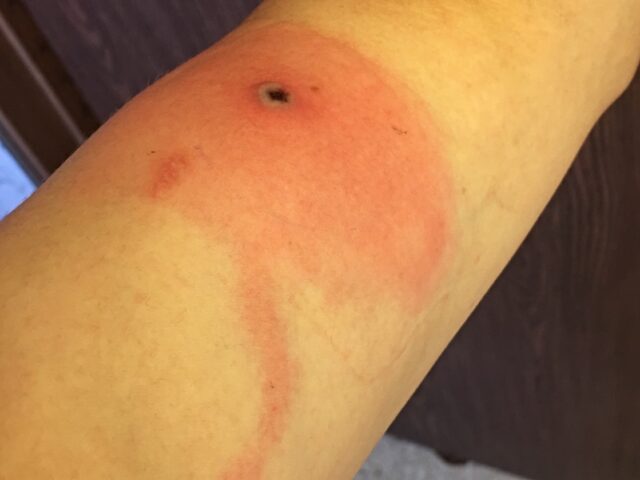Health officials say an elderly man who lived on Alaska’s Kenai Peninsula is the first individual to die of a virus known as Alaskapox.
The case is also the first documented human infection outside Fairbanks, the Alaska Beacon reported Friday. Therefore, it appears the virus has reached further than the wildlife population in that area.
Images show one affect of the disease which appear to be small lesions on a person’s skin:
The Beacon article continued:
The patient, who had an immune system that was compromised because of treatment for cancer, first reported signs of the infection in September when a tender lesion appeared in his armpit area, according to a bulletin issued by the state Division of Public Health’s epidemiology section. The infection worsened, and after six weeks of emergency-care visits, he was hospitalized locally. As the situation deteriorated and his arm movement became impaired, he was transferred to an Anchorage hospital. There, numerous tests were needed to identify the infection, the bulletin said.
Although doctors treated the patient, he endured renal failure, respiratory failure, malnutrition, and a host of additional issues before he died in January.
According to the Alaska Department of Health’s web page on the Alaskapox virus, it was first identified in 2015.
“Since 2015, six additional cases of Alaskapox virus have been reported in Alaska, five of which were in persons living in the Fairbanks North Star Borough and one person was living in the Kenai Peninsula Borough,” the site continued:
Current evidence indicates that Alaskapox virus primarily occurs in small mammals. The virus has been most commonly identified in red-backed voles and shrews, based on small mammal sampling in the Fairbanks North Star Borough. However, it is likely that the virus is more widespread in Alaska’s small mammal populations, and infections in humans may have occurred in other patients but were not diagnosed. Domestic pets (cats and dogs) may also play a role in spreading the virus.
The official’s bulletin noted the man lived in a forested area where he had cared for a stray cat that hunted smaller animals. The cat frequently scratched him.
“This is the first case of severe Alaskapox infection resulting in hospitalization and death. The patient’s immunocompromised status likely contributed to illness severity,” the bulletin read.

COMMENTS
Please let us know if you're having issues with commenting.